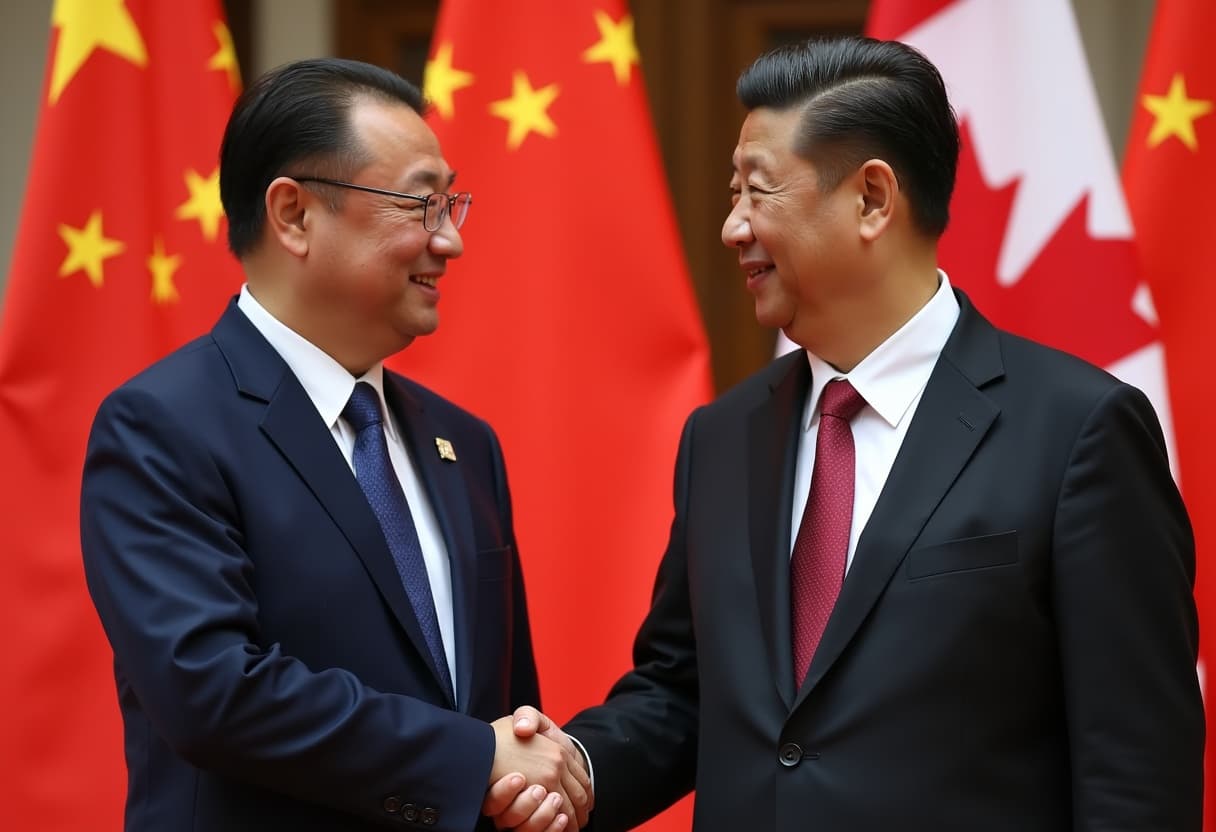Foreign Espionage Exploiting China's Postal System to Smuggle Rare Earths
China's Ministry of State Security recently unveiled a covert operation where foreign intelligence agents exploited the nation's postal network to smuggle valuable rare earth materials overseas. The revelation underscores the critical geostrategic value of rare earth elements, instrumental to both civilian technology and advanced military systems.
Smuggling Tactics: Disguises and Deception
According to an official statement shared on social media last Friday and highlighted by the South China Morning Post, these foreign operatives employed sophisticated methods to conceal the theft. Packages were deliberately mislabeled and routed through third countries using express delivery services—a tactic known as transshipment designed to bypass customs scrutiny.
- Rare earths hidden inside mannequins or mixed with ceramic tiles to evade detection.
- High-purity rare earths such as dysprosium and terbium falsely declared as less regulated items like nickel powder.
This cloak-and-dagger approach points to the lengths taken to circumvent China’s rigorous export controls.
Strategic Importance of Rare Earths
The ministry emphasized the critical national security value of rare earth-related materials, pivotal for both military hardware and consumer electronics. China dominates global production, mining nearly 70% of rare earths worldwide and refining over 90% of heavy rare earth elements, including those crucial for next-generation defense systems.
This dominant position has made China wary of any illicit extraction attempts, especially from nations lacking their own significant rare earth reserves, which it implied were behind the espionage but did not explicitly name.
China’s Proactive Measures to Secure Rare Earth Resources
Collaborating with multiple government departments, the Ministry of State Security reported successfully shutting down these smuggling channels, thereby reinforcing safeguards around these strategic resources and curtailing potential threats to China's national security.
Recent policy shifts reflect this urgency, including:
- New export rules in 2023 controlling gallium- and germanium-based materials, with explicit bans on shipments to American military users.
- Additional restrictions introduced this April targeting seven rare earth types and related products, responding to a surge in global demand and a 60% spike in exports in June—highest since 2009.
Broader Security Implications and Espionage Risks
The ministry also spotlighted the evolving nature of foreign espionage, warning against sophisticated cyber tactics such as artificial intelligence-driven data breaches, email hacking, and recruitment efforts targeting Chinese students abroad.
While no arrests were publicly reported in connection with this smuggling crackdown, the government urged citizens and industry stakeholders to remain vigilant and report suspicious activities, highlighting the shared responsibility in safeguarding these invaluable assets.
What This Means for Global Supply Chains and Security
China’s control over rare earth materials, essential for electronics, renewable energy technologies, and military equipment, has emerged as a focal point in international trade and geopolitical strategy.
As nations scramble to diversify their rare earth sources and reduce dependency on China, this exposure of espionage-driven smuggling shines a light on vulnerabilities within global supply chains. It also raises critical questions about the adequacy of international regulatory frameworks governing strategic minerals.
Experts suggest that increased transparency, enhanced customs cooperation, and robust cybersecurity measures are necessary complements to national export controls to deter such illicit activities.
Expert Insight: Balancing National Security with Global Demand
From an American policy perspective, the incident highlights the urgency for the U.S. and its allies to accelerate domestic rare earth production and recycling initiatives. Dependence on a single dominant supplier not only creates economic risks but also national security concerns, especially when adversarial intelligence operations seek to undermine supply integrity.
Moreover, this case reflects the broader context of tech rivalry and strategic resource competition shaping 21st-century global diplomacy.
Editor’s Note
This episode sheds light on the shadowy intersection of espionage, international trade, and resource security. Rare earth elements, though little-known outside scientific and defense circles, are linchpins in modern technology and military readiness.
China’s decisive action to counter these smuggling efforts underscores the geopolitical stakes involved. For policymakers and industry leaders worldwide, the message is clear: safeguarding critical mineral supply chains demands vigilant enforcement, innovative policy, and international collaboration.
As global demand for rare earths surges amid technological advancements, the challenge will be balancing open markets with stringent security measures to prevent strategic resources from fueling conflict or espionage.



















